Japan February/March 2019
February-15 till March-10, 2019 we visited Japan for 3 weeks, starting at East-Hokkaido (between Kushiro, Nemuro and Rausu) for app. 8 days, did the ferry from Tomakomai to Niigata and travelled from there to Tokyo. I am working on a true tripreport, but since that will take a while I would like to share some mammal notes. Good to know is that we were travelling as a family (with our son being 1,5 year), so we did not do any nightwalks and long hauls in search for particular species.
Somehow we have managed to see our mammals only at one island, either Hokkaido or Honshu (even foxes and Sika Deers eluded us on Honshu). The ferry in between was quite disappointing concerning mammals, none seen – although I have to admit that after a few hours of mainly empty seas even birdwise, we lost faith and went inside.
Here is the list of species we have seen:
Hokkaido
- Red Fox – Vulpes vulpes schrenki
Quite common on East-Hokkaido, seen several occations, some ridiculously tame. Most common on Notsuke Peninsula where we have seen 6 different foxes in 1-2 hours drive to and from the lighthouse. - Sea Otter – Enhydra lutris lutris
Lucky encounter of 3 individuals from Kiritappu Peninsula (43.078, 145.167) on Feb-16 - Sika Deer – Cervus nippon yesoensis
Quite common on East-Hokkaido, seen several occations, also quite tame. Most common on Nemuro Peninsula (for example around Lake Furen) and Notsuke Peninsula. - Spotted/Largha Seal – Phoca largha
1 group of app. 10 individuals seen in a bay around Cape Nosappu at Feb-18 (43.382, 145.812). Quite difficult to determine seeing only the heads, but based on the headshape and spots we were pretty confinced these were Largha’s. - Japanese Weasel – Mustela itatsi
Seen by my wife and based on her description it only could be this species. Seen in the garden of Furen Lodge (43.270, 145.472) on Feb-18. Apparently not the first time it has seen around this lodge, since the owner was not surprised that we had seen one. - Harbour Seal – Phoca vitulina stejnegeri
1 individual just outside the harbour at Ochiishi (43.179, 145.516) at Feb-19. - Grey Red-Backed Vole – Myodes rufocanus
One vole seen at Yuyado Daiichi (43.588, 144.722) at night on Feb-19 (waiting for Fish Owls). Based on appearance, distribution and habitat, we are quite confinced that it was this species. - Shrew spec. – Soricidae spec.
At night at Yuyado Daiichi (43.588, 144.722) on Feb-19, we saw 2 different individuals of what seemed to be the same species. They were (or seemed) completely dark grey, app. 4cm long not including the tail and had their shelters underneath the lodge and under a tree (habitat: hotel garden along a natural stream, deciduous forest opposite the stream). Any ideas about the species? - American Mink – Neovison vison
Introduced / escaped on Hokkaido. Seen early morning at the Yuyado Daiichi fish pond (43.588, 144.722) on Feb-20, eating the fish that the Fish Owl had left inside.Honshu
- Bat unknown – Chiroptera spec.
We saw 1 bat hunting above our lodge terrains in Niigata near Fukushimagata Lagoon (37.912, 139.237) on Feb-24. Not a clue which species though. - Japanese Macaque – Macaca fuscata fuscata
Visited the famous group at Jigokudani Monkey Park near Yamonouchi twice: late afternoon Feb-27 and early morning Feb-28, mainly to be able to see the monkeys bading in the hot spring (which they didn’t Feb-27 due to the warmth (6-7 degrees), but did next morning due to the rainy conditions). Unfortunate not seen any Serows along the trail. 🙁 - Japanese Giant Flying Squirrel – Petaurista leucogenys
Seen 1 at a nest box near Karuizawa at Mar-1 (around 36.363, 138.590). - Japanese Squirrel – Sciurus lis
Had to wait long to see our fist, which we eventually did on a walk on the slopes of Mt. Asama near Karuizawa on Mar-2 (around 36.378, 138.561). 3 individuals visited the feeders at Pension Bergcot near Chino during breakfast on Mar-4 (36.080, 138.260). - Raccoon Dog – Nyctereutes procyonoides viverrinus
1 of the 2 target species to visit Pension Bergcot (36.080, 138.260) near Chino, which we found highly recommended on Mammalwatching.com. And we understand why, what a lovely place. Thanks for recommending! During dinner 3 individuals visited the feeding station on Mar-3. - Japanese Marten – Martes melampus
The other target species to visit Pension Bergcot (36.080, 138.260) near Chino, where 2 (fighting!) individuals visited the feeding station on Mar-3. - Greater Horseshoe Bat – Rhinolophus ferrumequinum
Not be able to visit any bat cave that were mentoined in tripreports here, we visited Nippara Limestone Caves near Okutama just to give it a go, being the only caves that we were able to find on the internet between Chino and Tokyo that was certainly open for visitors in March. Nearby (along the toute from Okutama to Nippara Caves) was another set of caves, but since we had our portion we did not tried to visit them (if that is even possible, not checked). In Nippara Caves (35.853, 139.041) we did not find a lot of bats, but did find 4 Greater Horseshoe Bats on Mar-5, which was better then nothing. - Common Rat – Rattus norvegicus
Our last mammal of the trip, seeing 1 within the Ueno Zoo boundaries (free living) and 3 at the adjacent Shinobazu Pond in Tokyo (at 35.711, 139.770) on Mar-8.
I have to process most of our photo’s, but will continuously add a few on our website: https://pbase.com/corotauria/japan
Best regards,
Rick van der Weijde
Netherlands
4 Comments
Leave a Reply
You must be logged in to post a comment.


Vladimir Dinets
There are 4 spp. of shrews in Hokkaido, but Sorex unguiculatus is by far the most common and also the darkest. It is larger than 4 cm, but ou could see a juvenile (they are usually less shy).
Did you get photos of Rattus norvegicus? I am working on a paper on free-living rats in Japan, would like to use them if possible.